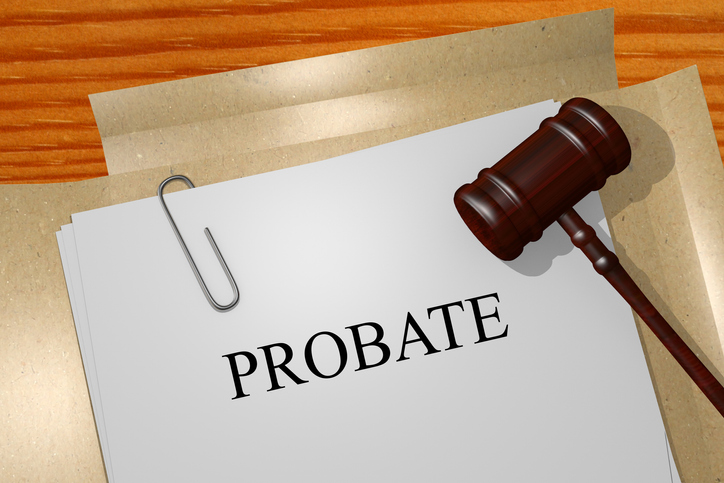
Depending on the nature of any given asset, there are ways to avoid probate.
Probate is the process of managing and distributing someone’s assets after they have died. For someone who dies with a will, the probate court will establish its validity, oversee distribution of assets, manage disputes, and handle any other necessary matters. For someone who dies intestate, or without a will, the probate court will also ensure that the administrator follows all state laws regarding inheritance.
This legal process complicates and delays the distribution of your estate. Fortunately, there are ways to avoid all of that. From establishing a living trust to simply holding joint ownership of your major assets, here are a few ways to avoid California Probate.
Everyone’s goals and circumstances are different. For personalized estate planning, talk to a financial advisor today.
How Much Does Probate Cost in California?
In California, the state levies a series of potentially steep fees when an estate goes through probate.
Filing and court fees can cost $1,000 or more. Then, the estate pays administration costs between 0.5% and 4% of the total value of the estate, depending on its size. Finally, the estate must pay any applicable attorney’s fees if lawyers get involved in either distributing its assets or managing any disputes.
In the case of a dispute this can get extremely expensive, as the costs of litigation are typically significantly higher than costs of administration.
How Long Does Probate Take?
Probating an estate typically takes between 12 and 18 months. Much of this time is set for fixed notification and response periods. For example, you must publish a notice of probate in a public space, such as a local newspaper, and wait at least three weeks so that any potential heirs know to attend the first probate hearing. There’s no hurrying this process along.
So skipping probate altogether is typically favorable. A financial advisor can help you set up an appropriate plan.
Small Estate Affidavits
One option in California is a small estate affidavit. This is a process used by heirs, not estate planners. If you are the legal heir of a small estate, currently defined as one worth less than $184,500 in total, you can present a small estate affidavit directly to the bank, brokerage or other institution holding the estate’s assets. They can then transfer those assets to you without a probate order.
There are three main catches to this process however.
- The total estate must fall under the affidavit cap, not just the value of the accounts you’re seeking.
- This rule only applies to cash, securities and personal property. It cannot be used to transfer land or other forms of real estate.
- You cannot do this if someone has already opened a probate case on this estate.
For estates and assets that meet these requirements, though, this can be an excellent shortcut.
Establish a Living Trust

Perhaps the most thorough way to avoid probate is through a revocable living trust.
A living trust is a legal entity that can own and distribute property under its own authority. Once you place assets in the trust, they become the legal property of the trust and not you. This excludes them from your estate after you die, leaving the trust to distribute its assets per your instructions.
To use this as an estate planning tool, you will name a trustee (the individual or individuals who oversee the trust), a series of beneficiaries (the individual or individuals who will receive assets from the trust) and instructions for how the trust’s assets will be distributed after you die. You can then transfer assets into the trust as you see fit.
During your lifetime, you will typically act as trustee and beneficiary. This lets you keep control over your assets, even if you don’t technically own them anymore. When you die, the trust’s successor trustee will take over and distribute its assets to your other named beneficiaries. Since the trust distributes the assets, and not your estate, there will be no probate process.
The major advantage to a living trust is that it can hold virtually any assets. You can, in theory, use this process to manage your entire estate, and generally can avoid the gift tax on contributions to the trust. The major disadvantage is that this is fairly complicated and expensive, so expect some real costs.
Talk to a financial advisor today to determine if a trust is the right option for you.
Hold Assets in Joint Title
For major assets, you can establish what’s known as “joint title.” This means that multiple different parties both own an asset together. Joint title includes what’s known as the “right of survivorship,” meaning that if your co-owner dies it does not disturb your title to the assets. You will continue to own the property as you did before, with no probate necessary.
For example, say that two people hold joint title to a house. If one of them dies, the other will continue to own the house. The person who passed no longer has an interest in the home, as it all goes to the survivor, so it will not go through probate.
In California, there are two main forms of joint title. The first, joint tenancy, can apply to any group of two or more people. They each own an equal share of the underlying asset. If one joint tenant dies, the remaining owners simply assume the decedent’s share.
The second form is called community property. This applies only to married or other legally recognized couples (for example domestic partnerships). Significant property acquired during the union automatically belongs to both parties, and that ownership continues even if one dies.
However, be careful not to confuse this with tenancy in common. This is when you each independently own a proportional share of an underlying asset. In this case, when one owner dies, their share will pass through their estate. It will be probated and inherited, and might not pass to the asset’s co-owner.
Joint title generally only applies to major assets like real estate or vehicles. Some banks will also allow it on depository or investment accounts.
Note: Be careful about how you add someone to the title of your assets. In some cases, the gift tax may be triggered. A financial advisor can help you determine the best ways to structure your estate.
Transfer/Pay-On-Death Accounts
While joint title is generally the preferred option for real estate, transfer-on-death accounts are a common vehicle for avoiding probate on financial accounts.
With a transfer or payable on death account, you establish instructions in a financial account that its holdings will transfer to a named party upon your death. This can apply to depository accounts, such as a checking account or savings account. It can also apply to an investment account, such as a portfolio of stocks and bonds.
The designated recipient has no rights to the underlying account prior to your death. They are simply a named beneficiary. Upon your death, the bank or brokerage will transfer the holdings of the account without the need for probate documents. This is not typically an automatic process. The named beneficiary usually has to claim the assets and provide proof of their identity and a death certificate.

In some cases, you can do the same thing with real estate. This is called a transfer-on-death deed. It only applies to some types of property, such as single-family homes or condominiums, but the process is otherwise similar. You file a deed with the local government naming a beneficiary who will take the property after your death. They can then claim the asset without needing to go through the probate process.
Bottom Line
Probate is an expensive and potentially time consuming process. If possible, it’s often better to find other ways to transfer assets to your loved ones, and the good news is that there are several ways of doing so.
Estate Management Tips
- Probate may be a hassle, but it’s exponentially worse when someone dies intestate. That leads to costs, delays and (very often) disputes over who can claim various assets. It’s unpleasant to think about, but make sure you help your loved ones avoid that.
- A financial advisor can help you build a comprehensive estate plan. Finding a financial advisor doesn’t have to be hard. SmartAsset’s free tool matches you with up to three vetted financial advisors who serve your area, and you can have a free introductory call with your advisor matches to decide which one you feel is right for you. If you’re ready to find an advisor who can help you achieve your financial goals, get started now.
Photo credit: ©iStock.com/Ryan Herron, ©iStock.com/shapecharge, ©iStock.com/hafakot